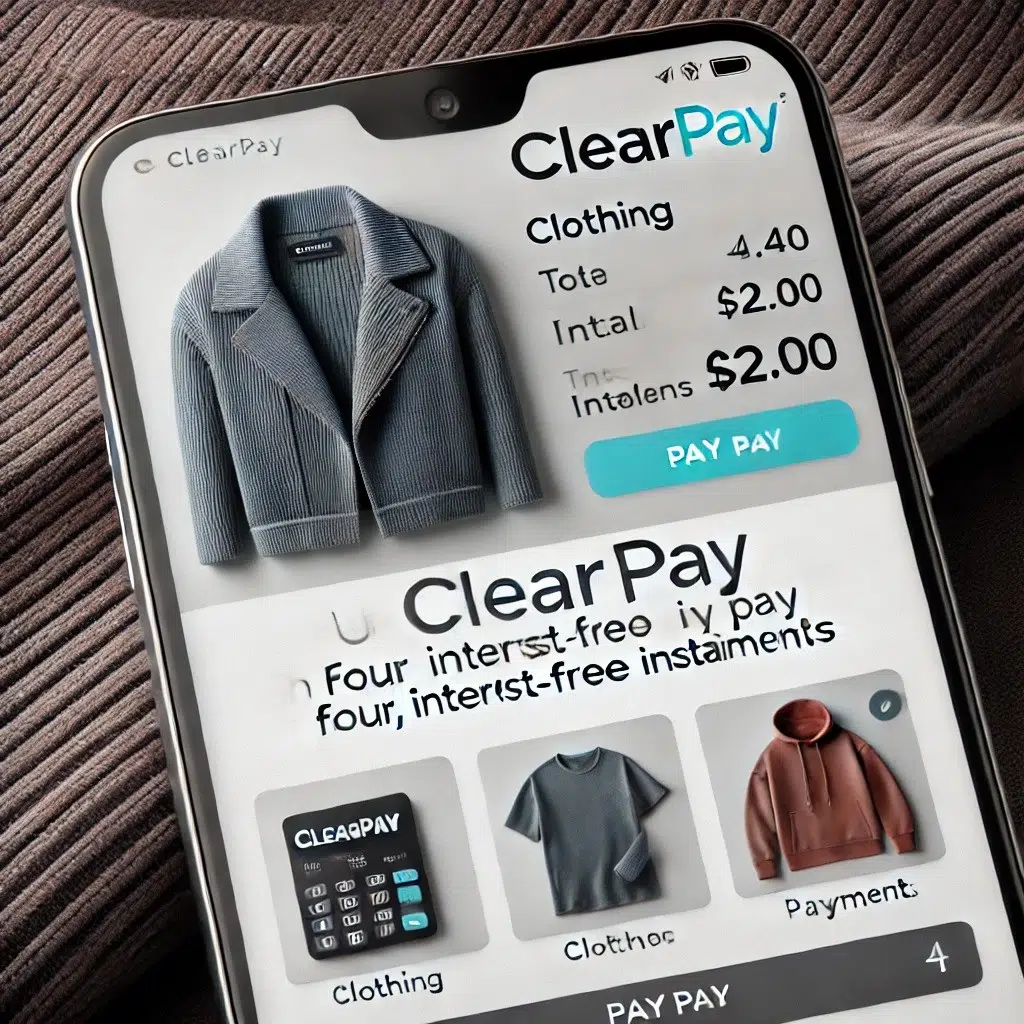In today’s fast-paced world, consumers are constantly seeking more flexible and convenient payment options. One such solution that has gained significant traction. This guide delves into everything you need to know about, including its features, benefits, and how it compares to other payment methods. We will explore how it works, its advantages, and the potential drawbacks users should be aware of.
What is Clearpay?
Clearpay, also known as Afterpay in some regions, is a “buy now, pay later” (BNPL) service that allows consumers to purchase items immediately and pay for them in interest-free installments. The service aims to provide a flexible payment option that eases the financial burden on consumers, allowing them to spread the cost of their purchases over time.
The Origins of Clearpay
Clearpay was launched in 2014 in Australia, where it quickly gained popularity. The company expanded to the UK and other countries, rebranding as Afterpay in some markets. Its mission is to empower customers by offering a smarter way to shop and manage their finances.
How Clearpay Works
it allows consumers to split their purchases into four equal, interest-free payments. The first payment is made at the time of purchase, and the remaining three payments are automatically deducted from the customer’s linked payment method every two weeks.
Step-by-Step Process
- Select Clearpay at Checkout: When shopping online or in-store, choose your payment method at checkout.
- Create an Account: If you are a first-time user, you will need to create an account. This involves providing some basic information and linking a payment method.
- Make the First Payment: Pay the first installment at the time of purchase.
- Automatic Deductions: The remaining three installments will be automatically deducted from your account every two weeks.
Benefits of Using Clearpay
it offers numerous benefits to both consumers and retailers. Understanding these advantages can help you decide if this payment method is right for you.
Consumer Benefits
- Interest-Free Payments: allows consumers to make purchases and pay over time without incurring interest charges.
- Budget-Friendly: Splitting payments into smaller, manageable amounts, helps consumers manage their budgets more effectively.
- Instant Approval: it provides instant approval at checkout, making the process quick and convenient.
- No Credit Checks: Unlike traditional credit options, it does not require a credit check, making it accessible to a wider range of consumers.
Retailer Benefits
- Increased Sales: Offering can lead to increased sales, as consumers are more likely to make purchases when they have the option to pay over time.
- Reduced Cart Abandonment: can help reduce cart abandonment rates by providing a flexible payment option at checkout.
- Customer Loyalty: Retailers that offer can attract and retain customers who prefer the convenience of BNPL services.
Potential Drawbacks of Clearpay
While Clearpay offers many benefits, it is important to consider the potential drawbacks before using this service.
Consumer Risks
- Late Fees: If a payment is missed, Clearpay charges a late fee. This can add up quickly if multiple payments are missed.
- Impulse Buying: The ease of using Clearpay may encourage impulse buying, leading to overspending.
- Limited Availability: Not all retailers offer Clearpay, which can limit its usefulness.
Retailer Considerations
- Transaction Fees: Retailers are charged a fee for each transaction made through Clearpay, which can impact their profit margins.
- Potential for Increased Returns: The convenience of BNPL services may lead to an increase in product returns, as consumers might purchase items they cannot afford.
Clearpay vs. Traditional Credit Options
Clearpay differs from traditional credit options in several key ways. Understanding these differences can help you choose the best payment method for your needs.
Clearpay vs. Credit Cards
- Interest: Unlike credit cards, does not charge interest on purchases.
- Credit Checks: it does not require a credit check, making it accessible to those with poor or limited credit history.
- Repayment Period: requires repayment within eight weeks, while credit cards offer more flexible repayment terms.
Clearpay vs. Personal Loans
- Application Process: it offers instant approval at checkout, while personal loans require a more extensive application process.
- Repayment Terms: Personal loans typically offer longer repayment terms than they.
- Interest Rates: Personal loans charge interest, whereas they offer interest-free installments.
How to Use Clearpay Responsibly
Using it responsibly is crucial to avoid potential pitfalls such as late fees and overspending. Here are some tips to help you make the most of this payment option.
Set a Budget
Before purchasing it, set a budget to ensure you can afford the installments. This will help you avoid financial strain and potential late fees.
Track Your Payments
Keep track of your upcoming payments to ensure you have sufficient funds in your account. it provides reminders to help you stay on top of your payment schedule.
Use Clearpay for Necessities
Consider using it for essential purchases rather than non-essential items. This can help you avoid impulse buying and manage your finances more effectively.
Impact on the Retail Industry
it has significantly impacted the retail industry by offering an alternative payment method that appeals to modern consumers. Its popularity has led to changes in how retailers approach sales and customer engagement.
Increased Consumer Spending
it has contributed to increased consumer spending by making it easier for customers to make purchases. This has benefited retailers by boosting sales and encouraging repeat business.
Adaptation by Retailers
Many retailers have adapted to the growing demand for BNPL services by integrating them into their payment options. This has allowed them to remain competitive and attract a broader customer base.
Future Trends
As the popularity of BNPL services continues to grow, retailers will need to stay informed about emerging trends and consumer preferences. This will help them adapt their strategies and continue to meet customer needs.
Clearpay’s Global Expansion
Its success in its initial markets has led to its expansion into new regions. Understanding its global reach can provide insights into its growth potential and impact on the international retail landscape.
Expansion into New Markets
it has expanded into several new markets, including the United States, Canada, and Europe. This has allowed the company to tap into a larger consumer base and increase its global presence.
Local Adaptations
As it enters new markets, it adapts its services to meet local regulations and consumer preferences. This flexibility has been key to its success in diverse regions.
Challenges of Global Expansion
While global expansion offers significant opportunities, it also presents challenges. it must navigate different regulatory environments and compete with established local BNPL services.

The Future of Clearpay
Its continued growth and innovation suggest a bright future for the company. Here are some potential developments to watch for in the coming years.
Technological Advancements
it is likely to continue leveraging technology to enhance its services. This could include improved user interfaces, advanced payment tracking, and personalized financial management tools.
Partnerships and Collaborations
it may seek partnerships with other financial technology companies and retailers to expand its offerings and reach. These collaborations could lead to new features and services that benefit consumers and businesses alike.
Regulatory Changes
As BNPL services like it become more prevalent, regulatory changes may occur to ensure consumer protection and fair practices. Clearpay will need to stay informed about these changes and adapt its operations accordingly.
Conclusion
Clearpay has revolutionized the way consumers shop and manage their finances by offering a flexible, interest-free payment option. Its benefits for both consumers and retailers have contributed to its rapid growth and widespread adoption. However, it is essential to use it responsibly and be aware of potential drawbacks to make the most of this innovative payment method. As it continues to expand and evolve, it will likely play an increasingly significant role in the global retail landscape.
